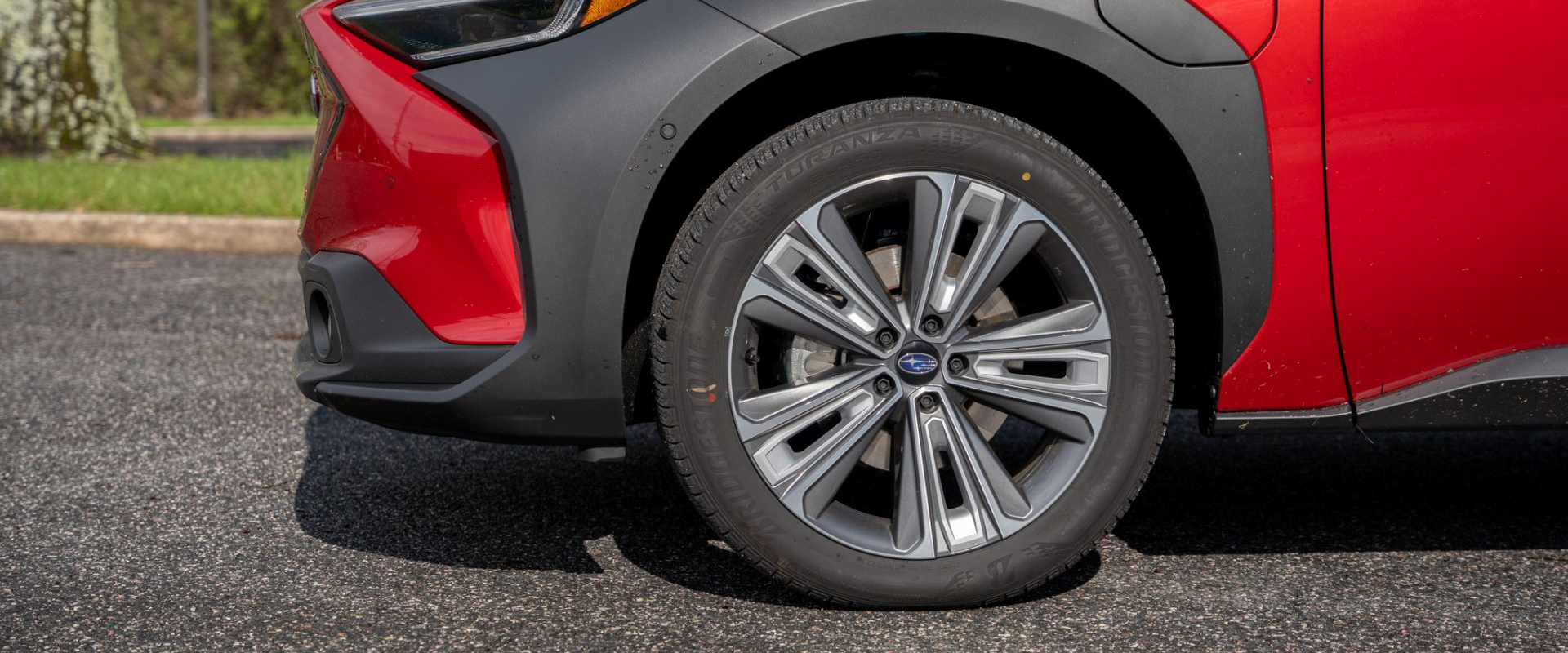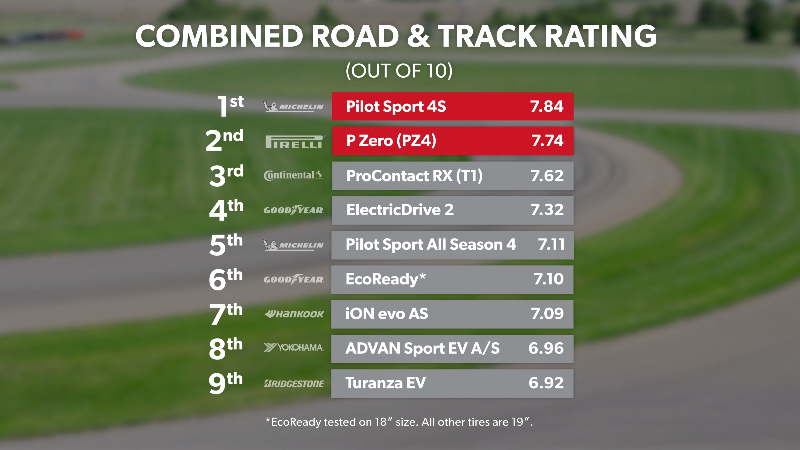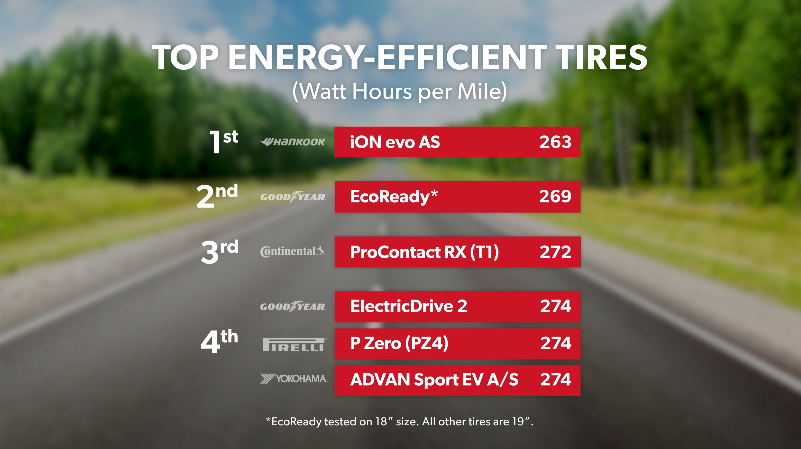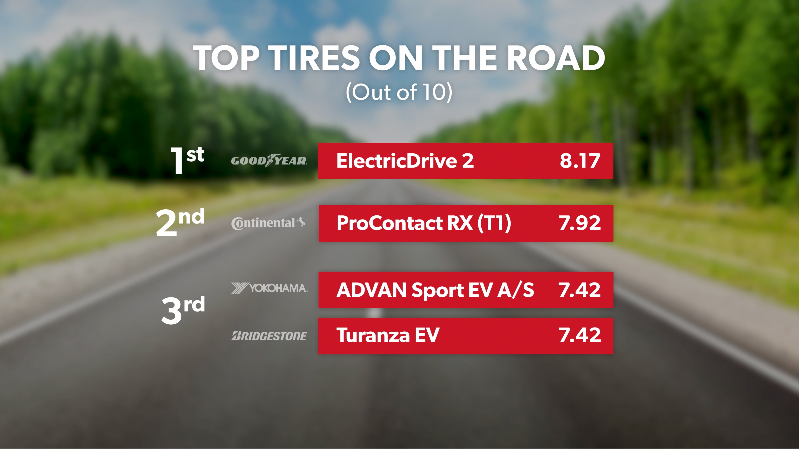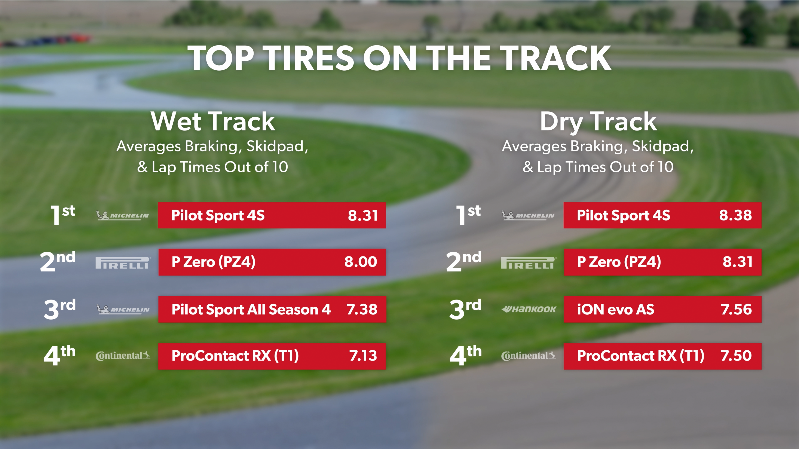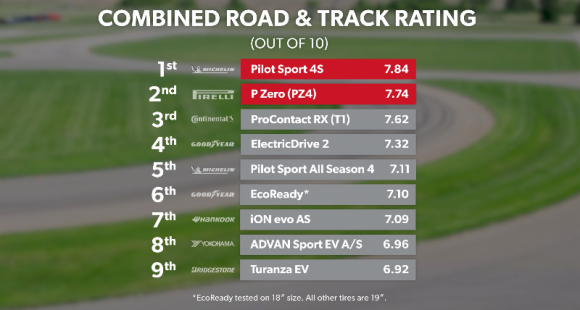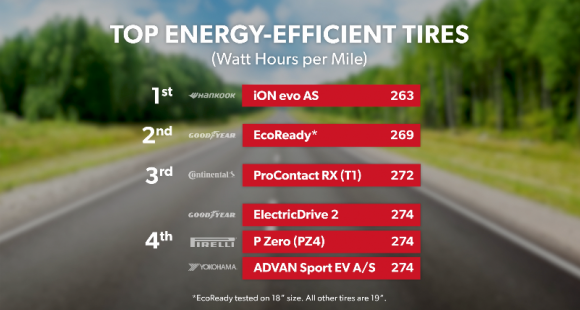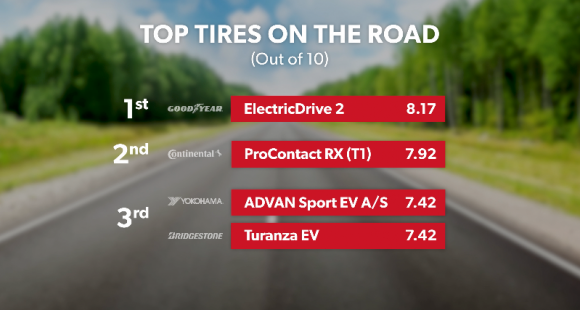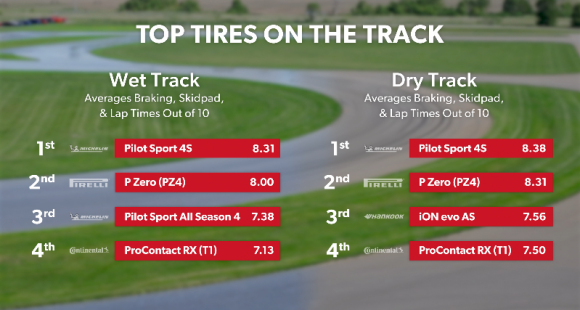EV-Specific Tires: Necessary or Nonsense?
June 26, 2024As the electric vehicle market continues to grow, so does the need for proper education, especially when it comes to maintenance. You’ve probably heard that EV specific tires are a thing, but how important is it for EV buyers to seek out tires made specifically with their machine in mind?
When it comes to separating treaded facts and fiction, our sponsor and friends at Tire Rack have a handle on it. As a follow-up to their 2023 video “Do You Really Need EV-Specific Tires?,” they’ve recently published “Are EV-Specific Tires Better than Popular Non-EV Tires?” in an attempt to answer this newaged question (and if you’d like to skip ahead to the answer, scroll down).

The test brought in nine different tires spread across three categories: grand touring all-season, ultra high performance all-season, and max performance summer, with five of the nine residing in the first category. Some tires are EV-specific, while others are general use; however, all tires were suited for the test vehicles. Each set was mounted onto one of two identical 2023 Tesla Model 3 Performance EVs, then driven through a series of on-road and on-track scenarios.
The on-road portion consisted of a six-mile loop across country roads and state highways near Tire Rack’s headquarters in South Bend, Indiana, providing a “real world” side to the data. Then testing moved to Tire Rack’s test track, consisting of 90-degree corners, a cone slalom and simulated expressway ramps, conducted in wet and dry conditions.
Another measure to make the test EV-pertinent was the range/efficiency portion, in which a 100-mile loop was performed to measure the watt hours/mile, then extrapolated to calculate range on a full charge with each tire equipped. General driving impressions, which are less scientific but arguably just as valuable when given by a tire expert, were also considered.
TJ Campbell, tire information and testing manager at Tire Rack, and Brent Rollins, assistant tire information and testing manager, conducted the tests.
And here’s the part where we mention spoilers– not the rear-most appendage on a performance machine, rather, the results of these tests. If you want to watch and discover for yourself, check out the link above first.
At the end of all the testing, the Michelin Pilot Sport 4S, one of two max performance summer tires, had the highest combined road and track score: 7.84 out of 10. Second place went to another summer set, the Pirelli P Zero PZ4. Rounding out the podium is the Continental ProContact RX, a grand touring all-season used as Tesla original equipment. As you can see, the top tire, while particular in design, is not EV-specific. But the results go a bit deeper than that.
As it turns out, the Hankook iON evo All-Season, an EV-specific tire, was the most energy-efficient; followed by the Goodyear Ecoready, a general use tire, and Continental ProContact RX, all of which fell under the grand touring category. In fact, only two non-grand touring tires made it onto the list, the Yokohama Advan Sport EV All-Season and Pirelli P ZERO, tying with the Goodyear ElectricDrive 2.
Results for the road differed, with the Goodyear ElectricDrive 2 taking first place with a score of 8.17 out of 10, followed by the Continental ProContact RX, and a third-place tie between the Yokohama Advan Sport EV A/S and Bridgestone Turanza EV. As expected, track testing favored the performance tires, with the Michelin Pilot Sport 4S scoring top marks in both wet and dry conditions; the Pirelli P Zero took second in both categories. While track testing may seem like an extreme, Campbell explains in the video that these tests are less about lap times and more about assessing how these tires can affect braking, steering, traction, handling and balance. For a little more context, Tire Rack published a test report, including commentary on each set.
So, what does it all mean? An EV-specific tire did prove to be the most energy efficient, and an EV tire also scored the best on the road; however, a general-use tire took the win overall, and each category saw a mix between the specific and general rubber.
Both Campbell and Rollins explain, and have demonstrated, that there is no absolute when it comes to EV tires. The most important thing is that a tire can meet a vehicle’s load, speed, pressure and size requirements, as well as the anticipated road conditions. From there, it boils down to the buyer’s preference– better efficiency, performance, etc. And to further the point, tire performance and wear is greatly influenced by driving style, meaning aggressive drivers will see less longevity from their tires– a fact that has existed as long as tires have themselves, and is likely not to change with the EV advent.
For those who miss the bumper ahead of every episode, First Drive and during every podcast, TireRack.com is a national sponsor of MotorWeek.




